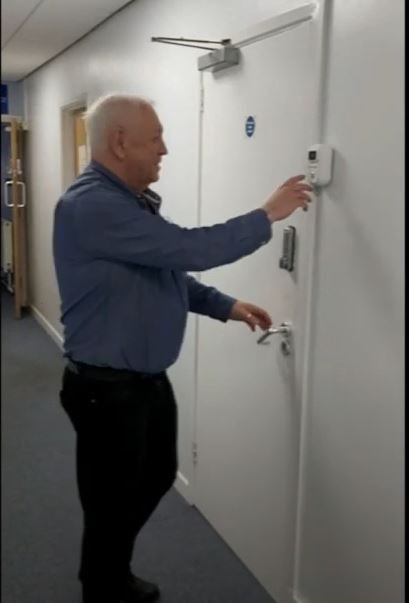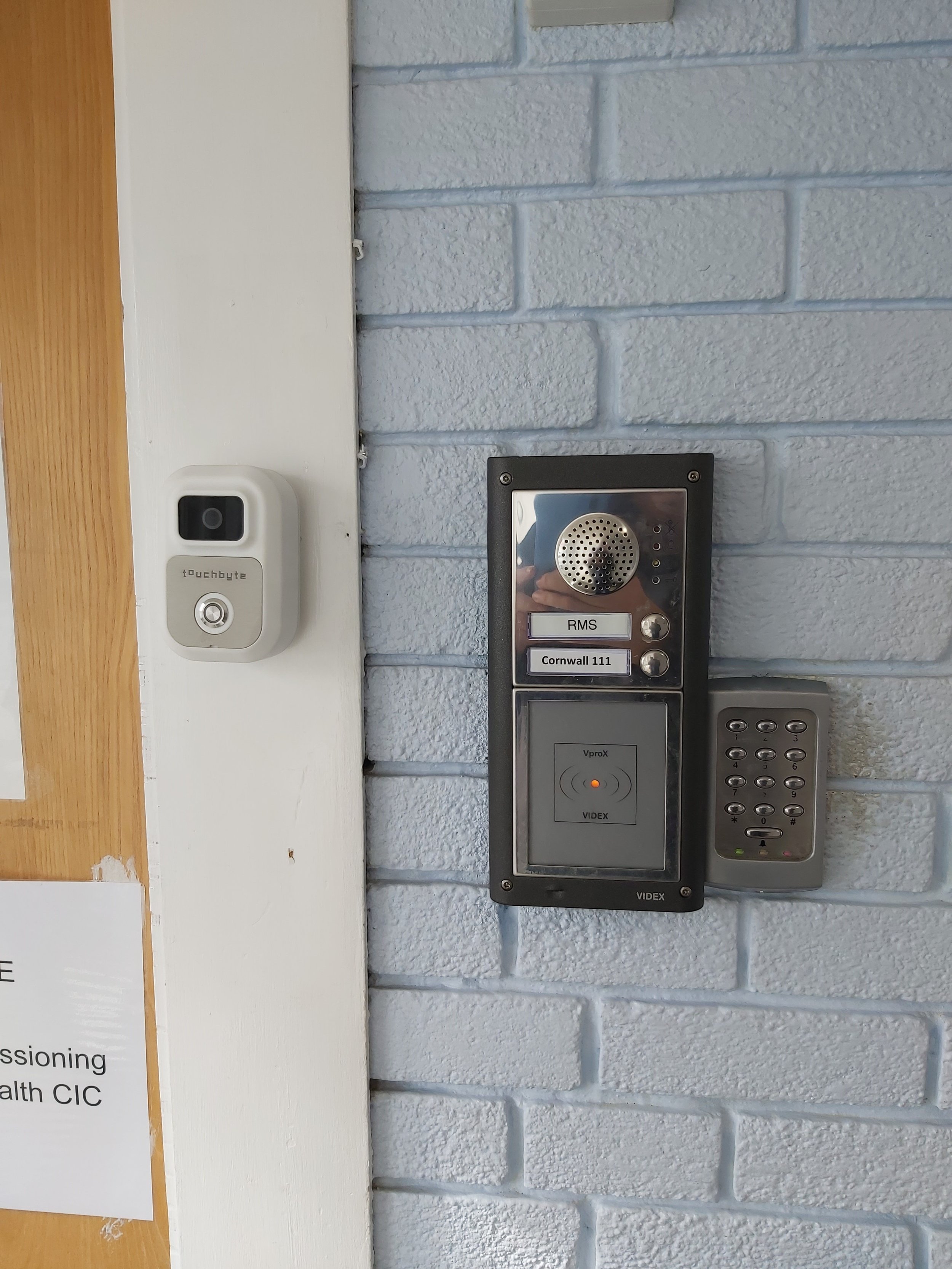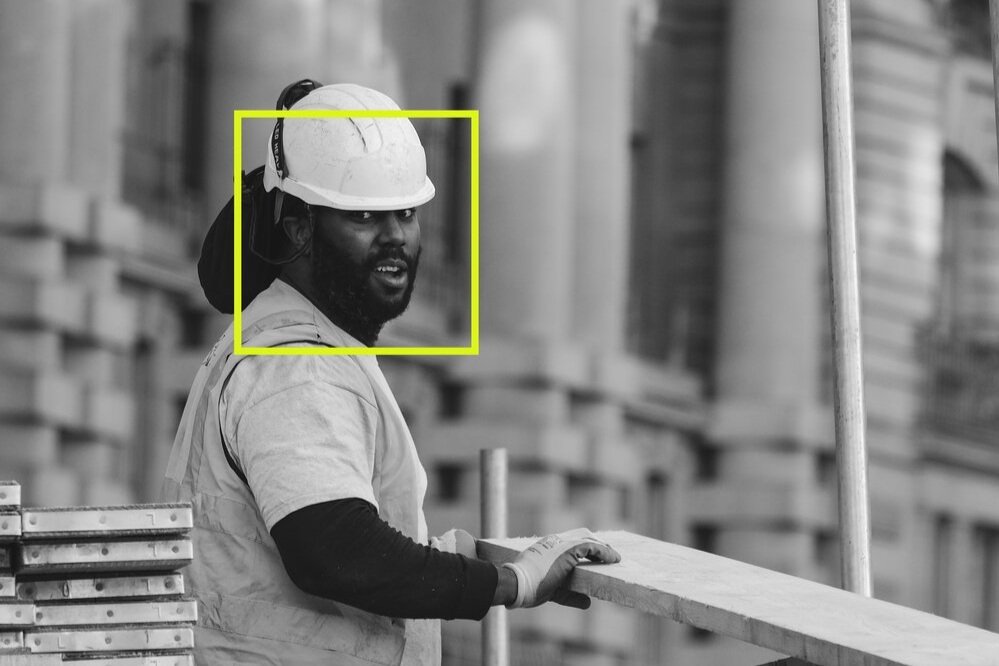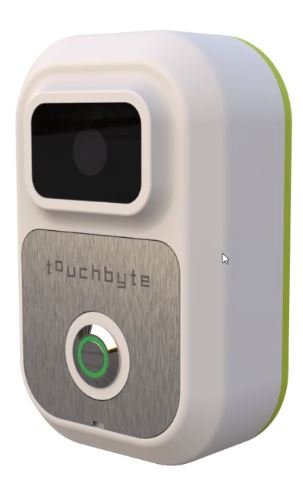
Smartline Research
TouchByte
TouchByte is an exciting Cornish IT business that’s developing ground-breaking facial recognition applications. We helped the business to realise the full potential of their offer in the health sector.
TouchByte recognised that their facial recognition expertise could benefit the health sector. But how could they go about making this happen? They approached Smartline to find practical ways to take their ideas forward.
Identifying the challenges
This is the first Prototype of Facentry installed in the NHS Cornwall 111 building.
TouchByte is innovating facial recognition (FR) applications for new worldwide markets. The team at TouchByte was keen to explore the new market of eHealth and eWellbeing, as they saw the potential to adapt their FR applications for this market.
The main challenges for TouchByte were the specific requirements of the eHealth and eWellbeing markets in terms of scientific requirements, evidencing impact, standards and regulations. They’d also need to understand what customers want, in order to identify which FR applications to prioritise and develop.
Exploring the opportunities
Smartline’s In Residence enabled TouchByte to access expertise in health. It gave them the knowledge and support to identify how FR technology can be used within the healthcare industry, as well as how to approach this market and adapt their applications to suit it.
TouchByte also gained access to the healthcare community through a series of interviews and workshops. Kernow Health CIC were key throughout consultations. They were keen to collaborate further, because they’d identified that the Cornwall NHS Service building was in need of improved access and security. Could installing FR be the answer? The building could also provide a test-bed to trial FR for its usability and safety in a live health care setting.
Building and testing the prototype
This picture shows the door station which uses facial recognition via TouchByte’s technology.
Next came building and installing the prototype. Smartline’s Follow-on Grant enabled TouchByte to fine-tune their FR hardware, make it “spoof proof”, more secure and accurate for a live health care environment. Facentry, which automatically unlocks a door by recognising programmed faces, was born: a valuable part of TouchByte’s innovation programme.
However, in early 2020 Covid-19 was about to stall the trial. But, with an operational prototype, the support from Smartline enabled TouchByte to successfully apply for an Innovate UK grant, developing their product into a completely contactless door entry option for the construction industry.
Their innovative system provides touch-free, Covid-safe access, helping to open up construction sites in a Covid-secure way, while also managing health and safety.
“Support from Smartline enabled us to address the main challenge of getting the health sector to accept FR technology and allow us to put it in. We had developed technology to a point, but needed to change it slightly to meet the needs of a Covid world by making a new contactless version. This we have been able to do, which means we are still here and have a business that is even more successful.”
Investigating new possibilities
A further knock-on from the pandemic was the rise of virtual meetings and appointments. TouchByte began to develop SecureCall, a product that integrates facial recognition into virtual meeting software such as MS Teams.
By introducing the facial recognition element to confidential appointments such as GP consultations, the health service could ensure that the right person was attending, improving patient safety.
The second In Residence
It was back to In Residence support. We worked with TouchByte to help them develop their new product. There were two key questions: is there a market, and is this a short-term product (until Covid restrictions are lifted) or is there a long-term use?
Focusing on the potential benefits for face-to-face medical consultations, how can TouchByte get their product into the NHS? We involved a designer to create two infographics that would demonstrate the product.
Working with Dr Tim Walker and our partners at the South West Academic Health Science Network, we identified key stakeholders for TouchByte to approach, using the infographics to guide conversations.
The South West Academic Health Science Network Quality Improvement Partner Panels (QuIPPS, the Quality Improvements Partner Panel) provided a platform to explore the acceptability and usability of SecureCall among members of the public.
In the meantime, TouchByte has adapted SecureCall for the care and construction sectors. Used for online health and safety training, the course leader is able to verify that the right delegates are attending these mandatory courses.
“With no understanding of the health system, we would have spent days, years establishing what achieved via the In Residence, that there is a market but the NHS are not ready for SecureCall today.”
The result: new-to-market products from TouchByte
This is an example of TouchByte’s innovative technology.
If you take a look at TouchByte’s website, you’ll see the success of both their products. Facentry and SecureCall are now available, both providing safeguarding solutions that are perfectly placed to work with our touch-free world.
With potential in the health, care, construction, hospitality, education and prison sectors, there’s a lot of scope for TouchByte’s leading-edge tools.
Global Expansion
In mid 2023 TouchByte announced its acquisition by SALTO Solutions; a global market leader in smart electronic access control solutions.
Touchbyte MD, Jeremy Sneller, says the acquisition marks an exciting new chapter for the company.
“At TouchByte, we believe in delivering simple, safe, secure, and convenient access control solutions, eliminating the need for keys, codes, fobs, cards, wristbands, phone or fingerprint scanners.
“With the acquisition by SALTO Solutions, we can expand our capabilities globally and extend our commitment with SALTO to provide unparalleled access control technology worldwide.”
Support from Smartline played a pivotal role in Touchbyte’s journey from start-up to acquisition ready. Jeremy continues,
“We’ve worked closely with the University of Exeter team which has helped us with initial research and support to create a contactless access control product for the Health and Care marketplace. This has helped in positioning us a suitable acquisition partner for Salto. “
Who is involved?
Facentry: Emma Seymour, Cheryl Paterson and Dr Tim Taylor from the University of Exeter, and Kernow Health CIC.
SecureCall: Emma Seymour, Prof Karyn Morrissey and Dr Tim Walker from University of Exeter, and William Lilley and Zoe Robinson from South West Academic Science Network. The Design Studio used was Luna 9.





